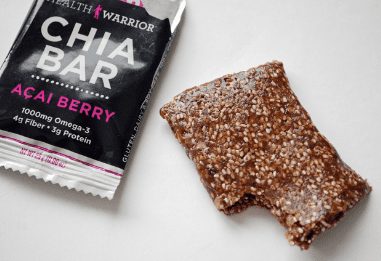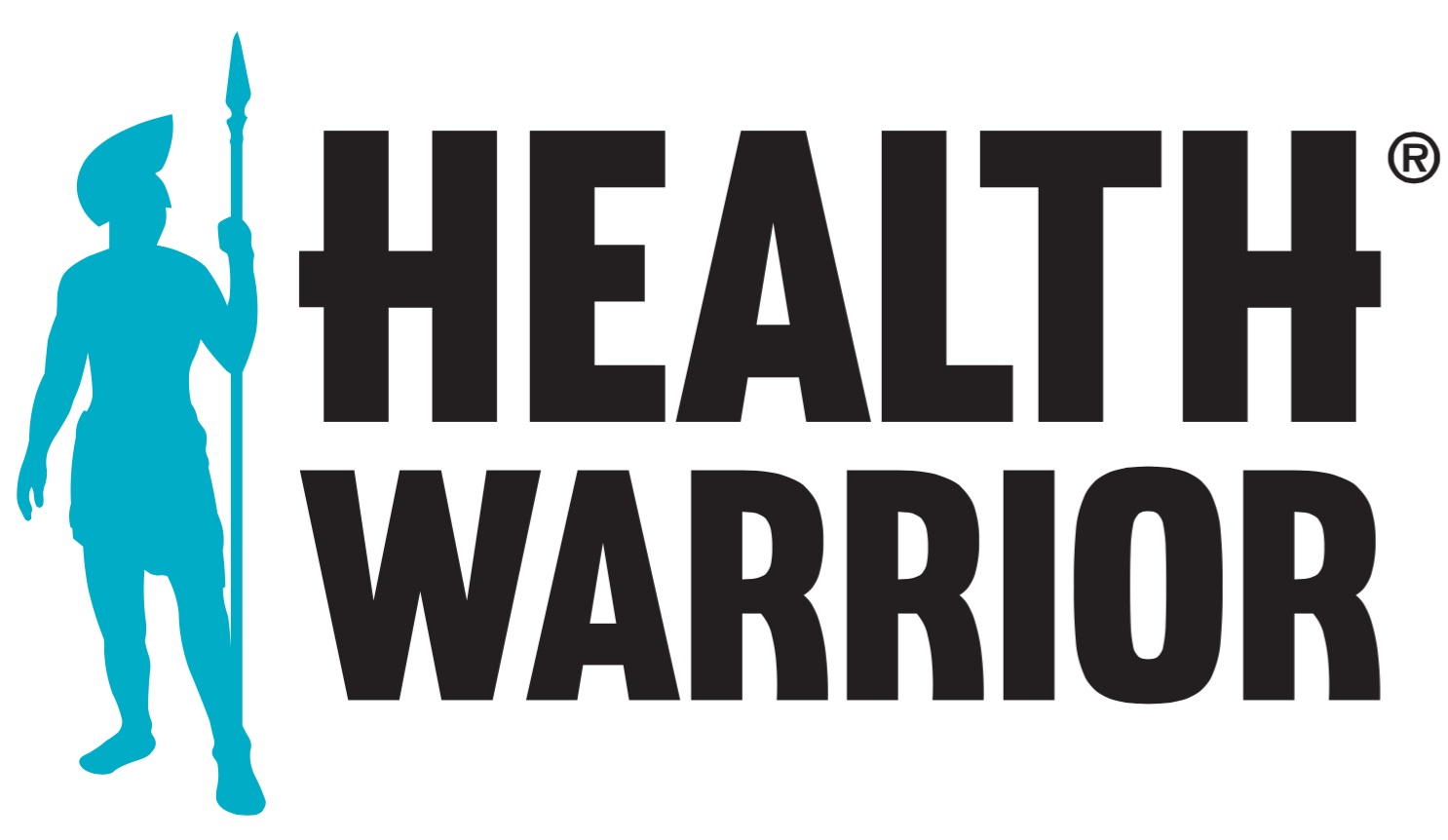
News
Blog | 10 min read
November 1, 2019

The Richmond Region’s Food & Beverage industry covers a large and growing range of products, processes and packaging options. Due to an increased demand for healthier food in recent years, organics are growing in popularity and impacting the region’s food & beverage industry like never before. Richmond’s health consciousness mindset has brought about successful startups like Health Warrior – a chia seed-based protein bar firm that went from selling their healthy bars online through Amazon to being in countless retail stores including Whole Foods, Wegmans, and Target.
 Shane Emmett had been a college athlete and was a happily practicing lawyer, working for then-Governor of Virginia, Tim Kaine. Then seven years ago, he got bitten by the chia bug. He and his college buddies learned from the book “Born To Run” that Tarahumara Indians hid from the Spanish conquistadors for hundreds of years in a vast rugged canyon in southern Mexico and lived on a diet featuring chia seeds, which were so nutritious and filled with so many Omega-3 fatty acids that Tarahumara people could run 25, 50, even 100 miles barefoot. The more they read about and pondered the state of nutrition in America, the more convinced they became that Americans needed to eat healthier foods. “Most food Americans eat is packaged food and the great majority of that packaged food is junk food,” he says. “The packaged food industry is a big part of the obesity and diabetes crisis that is killing us slowly.”
Shane Emmett had been a college athlete and was a happily practicing lawyer, working for then-Governor of Virginia, Tim Kaine. Then seven years ago, he got bitten by the chia bug. He and his college buddies learned from the book “Born To Run” that Tarahumara Indians hid from the Spanish conquistadors for hundreds of years in a vast rugged canyon in southern Mexico and lived on a diet featuring chia seeds, which were so nutritious and filled with so many Omega-3 fatty acids that Tarahumara people could run 25, 50, even 100 miles barefoot. The more they read about and pondered the state of nutrition in America, the more convinced they became that Americans needed to eat healthier foods. “Most food Americans eat is packaged food and the great majority of that packaged food is junk food,” he says. “The packaged food industry is a big part of the obesity and diabetes crisis that is killing us slowly.”
The three former college athletes decided to find the best and most reliable source of chia seeds, which turned out to be a company in Chile. On the side, apart from their day jobs, they started importing chia seeds and paying a contract manufacturer to turn them into high nutritional content, low sugar energy bars. They gave a few to professional athletes who were friends and sold a few on Amazon.com over the course of six months — just for fun. “I had 25,000 pounds of chia seeds in the hallway of my condo while I was practicing law,” Emmett recalls.
Then in 2012, a reporter for The Wall Street Journal saw their chia bars in a couple of different National Football League locker rooms and wrote a story headlined, “The NFL’s Top Secret Product.” Emmett’s company, called Health Warrior, sold 100,000 bars in an hour on Amazon, wiping out its entire inventory. Then Whole Foods called and said it wanted to distribute the bars, which come in a variety of flavors. “We did not have employees,” Emmett says. “We really had no idea what we were doing in consumer goods, but we knew the mission was right on.” After Whole Foods, Health Warrior moved into distribution nationwide, including accounts like Target, Wegmans, and Sprouts Farmers Market. Suddenly Health Warrior had a national distribution footprint of 13,000 retail outlets. In October of 2018, Health Warrior was acquired by PepsiCo as part of “The Hive,” an entity in PepsiCo focused on developing smaller brands in line with emerging trends.
What city gave birth to Health Warrior? Was it Boulder, Colo., or Brooklyn’s trendy Williamsburg section? No, it happened in Richmond, Va., which is emerging as a hub for new concepts in the food and beverage industries as Americans seek healthier lifestyles. It’s happening for a number of reasons: the region celebrates fine cuisine, judging from its emerging restaurant scene, and agriculture still is the state’s largest export, meaning high quality ingredients are readily available. Early stage venture capital for food and beverage companies has become available thanks in part to the Ukrop family, who immigrated from Slovakia in 1900 and dominated Richmond’s supermarket scene for decades before selling to Holland’s Ahold. Now among other activities, the family runs New Richmond Ventures (NRV), which was an early investor in Health Warrior.
Other factors:
Large companies operating in the Richmond area include AMF Bakery; C.F. Sauer, a maker of spices and cooking oils; major milk producer Dean Foods; Mondelēz International (formerly Kraft-Nabisco), which makes cookies and crackers; Sabra Dipping, maker of hummus and dips; and San-J International, which makes Tamari sauce, the gluten-free equivalent of soy sauce. Those companies employ 4,000 employees and have created a deep pool of skilled labor.
 But in some ways, the area’s start-up scene is more exciting because smaller niche food companies and breweries are gaining traction and have the potential to change what Americans eat, particularly if they are acquired by much larger firms that then expand their offerings. At the heart of this entrepreneurial burst is Jim Ukrop and his NRV, which last year raised $33 million for its Early Stage Growth Fund. It offers more than money to emerging food companies because the Ukrop family ran a chain of supermarkets for two generations. Jim’s brother Bobby continues to operate a successful homestyle food operation. With this experience, NRV can advise start-up CEOs about how to build their businesses. “They have been investors who understand the challenges of the grocery industry,” says Emmett. “You can talk to them about things like distribution.”
But in some ways, the area’s start-up scene is more exciting because smaller niche food companies and breweries are gaining traction and have the potential to change what Americans eat, particularly if they are acquired by much larger firms that then expand their offerings. At the heart of this entrepreneurial burst is Jim Ukrop and his NRV, which last year raised $33 million for its Early Stage Growth Fund. It offers more than money to emerging food companies because the Ukrop family ran a chain of supermarkets for two generations. Jim’s brother Bobby continues to operate a successful homestyle food operation. With this experience, NRV can advise start-up CEOs about how to build their businesses. “They have been investors who understand the challenges of the grocery industry,” says Emmett. “You can talk to them about things like distribution.”
Ukrop says NRV fills a gap in the region’s “capital stack,” or financial ecosystem for start-ups. “Start-up companies start out raising money from family and friends,” Ukrop explains. “Then the next step is angel investors. We come in after the angel investors and we help these companies grow up by bringing talent into them, giving them advice and counsel, so we can take them to the next level, which is the strategic investor stage.” Strategic investors typically are large companies that may invest in a start-up and eventually buy it to get access to its new products and ideas. Health Warrior, for example, already is collaborating with Nestle, the big Swiss conglomerate, on innovation. That could set the stage for investment at some point down the road. “Some big company out there is going to like the Health Warrior brand,” says Ukrop. “They’re developing a whole family of products, like soups and other healthy foods.”
A similar startup that received an investment from NRV is Nutriati, which is attempting to shake up the entire food industry by substituting flour made from chickpeas, also known as garbanzo beans, for regular flour, which contains gluten’s and other substances that are not ideal for human health. At a test kitchen in Henrico County formerly used by the University of Richmond’s Culinary School, the company is experimenting with using its flour in French fries, cookies, pasta and chocolate brownies. Chickpeas are high in protein and don’t cause allergic reactions that can sometimes result from the consumption of wheat, eggs or milk. In addition to funding from NRV, the company attracted an investment from a London-based firm, Tate & Lyle Ventures, that also specializes in expansion-stage food companies. CEO Richard Kelly told the Richmond Times-Dispatch that a brownie made with his company’s flour “is gluten-free, it has half the sugar and double the protein of a normal brownie.”
Another new piece of the Richmond entrepreneurial ecosystem for food and beverages opened in February 2019. Two local entrepreneurs, Austin Green and Brad Cummings, teamed up with Startup Virginia, a non-profit entity supported by Capital One – the region’s largest private employer — that encourages entrepreneurship, to create Hatch Kitchen. The kitchen, located in the Clopton Siteworks development, is a commissary kitchen for local food companies, a kind of incubator, where they can develop new concepts and have access to mentors, investors and marketers.
Newcomers to Richmond are also contributing to the food and beverage buzz. Perhaps the biggest is Stone Brewing, a $250 million to $300 million a year company headquartered in San Diego. A maker of unique craft beers, it noticed that its East Coast sales were increasing at the expense of mass brands such as Budweiser and Miller. “I think it’s part of the general trend of people wanting to be healthier and wanting to know more about the foods they eat and the beverages they drink, where they come from and who makes them,” says Stone Brewing co-founder Steve Wagner. “Craft beer really plays into that trend and helps drive it.”
Realizing it needed an East Coast production facility, Stone hired a search consultant and put out a request for proposals from different cities. It received 200 responses. The company narrowed it down to 20 locations and started visiting them. “We were surprised when we first went to Richmond to do some research,” Wagner says. “I hadn’t been there for about 13 years to attend a wedding. Frankly, back then, there wasn’t that much going on.”
But Richmond had changed and now had the “cool factor,” Wagner says. “The city fathers realized a while ago they had a problem in that young people would not stick around. They would move someplace else when they finished college and never come back. Leaders wanted to intentionally change their city and have a vibrant young population.” They developed local universities and recruited or developed companies to hire young people, which is why Richmond is now a favorite destination for millennials fleeing high living costs in other cities. “If you turn a town into a cooler, hipper place, then businesses will develop to cater to those folks,” says Wagner. “It’s a tribute to the adventurism of the younger people in Richmond. Whether beer or wine or different types of ethnic food, for that kind of scene of flourish, you have to have the people to patronize it.”
There were other factors in Stone’s decision. The city identified a site on the James River which offered an opportunity to retrofit the area and create a brewery and tasting room that felt contemporary. That appealed to Stone.
Gov. Terry McAuliffe, attempting to woo Stone, also invited Wagner to the governor’s mansion, which was built on the grounds of the State Capitol designed by Thomas Jefferson. That helped charm Wagner. Other governors had given him 10 minutes on the phone. Plus, Richmond lent $23 million to Stone, which it is paying back with interest over the course of a 25-year lease. Altogether, Stone has invested $76.2 million in its Richmond facility.
Yet another reason is the tone set by at least 30 other craft breweries in Richmond. Wagner spoke to some of them and did not encounter the attitude he expected: the big bad newcomers were going to drain business away. Instead, they welcomed Stone Brewing because they felt it would raise the tide for all their boats, helping establish Richmond as a destination for craft beer lovers. With the designation by Vinepair as the world’s top beer destination of 2018, it seems to have worked. Cheers!